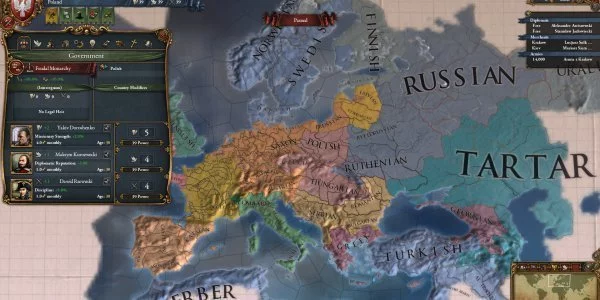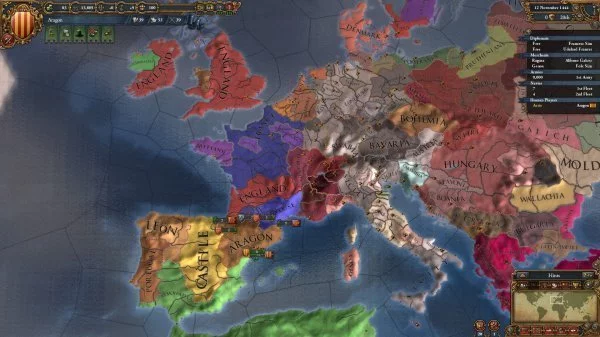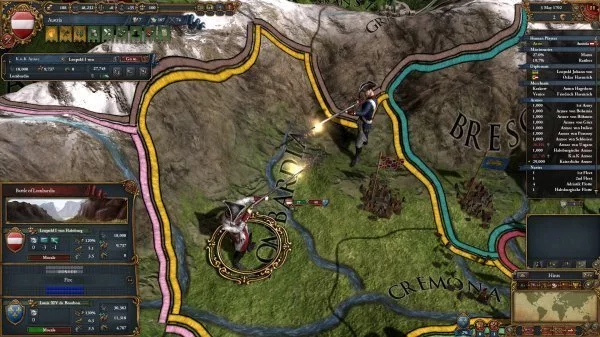Stevivor was in Sydney last week to check out a hands-off presentation of Paradox Interactive’s Europa Universalis IV thanks to Henrik Fåhraeus, the game’s Project Lead.
The grand strategy game – a genre “coined by Paradox,” according to Fåhraeus – lets you take over the reins (pun very badly intended) of a country at any point between 1444 and 1821. Based on the old French board game of the same name, Europa Universalis IV is a sandbox strategy title; you don’t have grand objectives to have to fulfil, and you certainly won’t have victory conditions placed upon you like in Civilization. Instead, it’s up to you to play as you’d like. If you want to play as England and take over the world, Risk-style? Well, go for it. If you’d like a challenge, you can play as a smaller, developing nation and try to overpower technologically advanced countries. Emphasis there on “try.”
Hell, you can even play as the Iroquois and live in peace until those from the New World bring over more advanced technologies that you wouldn’t be able to develop on your own.
You can initiate combat at any time, but if you act hastily, the countries around you will look poorly upon you. To succeed as a conqueror, you’ll need legitimate reasons to invade or initiate war. For the passive gamer, you can choose to live in peace throughout the entire game, instead expanding your borders (and horizons) using trade. Countries aren’t balanced in any way, so playing as England or China using one strategy will produce grossly different results if you use the same tactics as, say, Denmark.
Regardless of how your country’s leadership works, you’re given Monarch Points to develop your region. You can throw them at one of three technology tracks, or you can use them to change the religious beliefs of your culture. You may choose to do the latter to disrupt your region for fun (or the challenge), or to bring a conquered region in line with your country’s belief systems. Thankfully, the game’s UI is fairly easy to understand; you’ll be able to delve into systems as lightly or as heavily as you’d like, according to Fåhraeus.
I can see how a game of this type would appeal to a certain type of gamer; you’re given a ton of freedom and in-game systems to manipulate. Fåhraeus said that gamers frequently take to the Paradox forums to discuss the intricacies (and potentially exaggerate stories) of what happened in their respective playthroughs. Personally, I like the idea that you’re left to your own devices, but I know I’d get a bored quickly with a game that doesn’t have any set objectives, nor any way to assign your own anywhere.
In short, Europa Universalis IV requires a bit of imagination, and those lacking in that department (me included) might struggle.
If Europa Universalis IV sounds like it’s up your alley, you’re in luck. A game demo is available on Steam right this instant, and the full game will be available from Tuesday 13 August 2013. Or, you know, tomorrow.
https://youtu.be/DIwchYbRUGE
This article may contain affiliate links, meaning we could earn a small commission if you click-through and make a purchase. Stevivor is an independent outlet and our journalism is in no way influenced by any advertiser or commercial initiative.






















